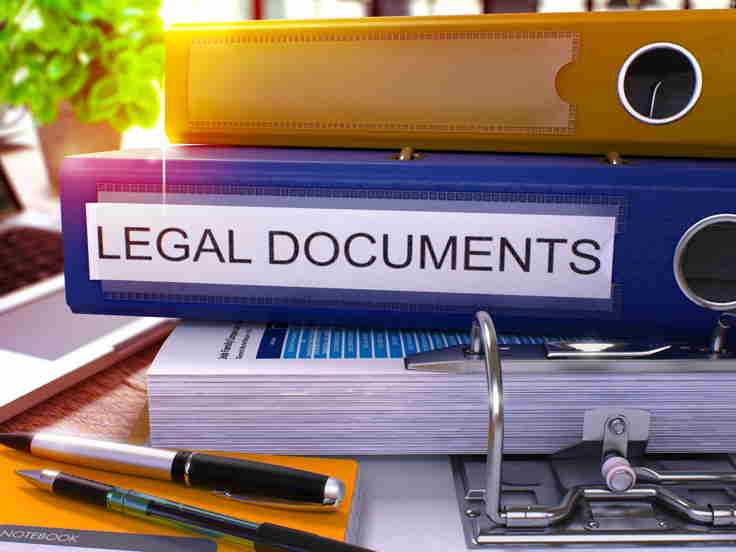Deciding whether or not you want to sell your house can be a tricky process in itself. However, the hard work begins right after you’ve made the decision and start the selling process. Organising your documents is a very important step you need to take in order to get your house selling process up and running. In what follows, we’ll answer the question: “what documents do I need to sell my house in the UK?”.
11 Documents You Need to Sell Your House in the UK
Management Information Pack
If you want to sell your property fast, having a management information pack could increase your chances of doing so by quite a bit. A management information pack, also known as a leasehold information pack, contains information about the freehold management, forming part of the leasehold information a seller is formally required to provide to their buyer.
You can either hire a solicitor to obtain the pack for you or you can acquire it yourself from the managing agent or freeholder. However, you should keep in mind that it takes a few weeks for the pack to arrive. If you’re on a tight schedule, purchasing this sooner rather than later can be a big boost. If your managing agent is unresponsive or if you’re having issues with your estate agent, check our guide on what to do if your estate agent isn’t performing.
Property Title Deeds
The original property title deeds are another document you will likely need in order to sell your property. This document will contain the details pertaining to the chain of ownership of your property. Unless you already have the title deeds, you’ll need to check whether these are digitally registered under your name with the HM Land Registry.

Energy Performance Certificate (EPC)
Energy Performance Certificates contain details about how energy efficient a particular property is. Homes are given energy efficiency ratings ranging from A to G, with A being the most efficient. This is an important document for prospective buyers as they will want to know approximately how much energy bills will cost them once they move in or if they will need to invest in improving the efficiency of the property’s energy system. If you’ve misplaced your EPC, you might be able to access a copy at the register by simply providing them with your address.
Proof of Identity
In order to successfully sell your house, you will also need some form of photo ID which proves your identity as the owner of the property you’re trying to sell. Without a valid form of ID, your sale won’t go through. If you don’t have ID, be sure to apply for whatever photo ID you choose in advance as some can take several weeks to be issued. If you don’t have anything which can prove your identity, you might end up losing out on a buyer that can’t wait around for delays.
Shared Freehold or Leasehold Documents
If the property you are trying to sell is a leasehold, you will need to provide prospective buyers with the lease for said property. If it is a freehold, the Share Certificate will need to be provided.

The TA10 Form
The TA10 Form, also known as the fittings and contents form, serves the function of allowing both parties to agree upon what fixtures will be included in the sale of your home. The document will cover every room in the property and is meant to disclose every item you will leave in the property for the new owner to use as he pleases after the sale is completed. Both the indoor and outdoor areas of your property are covered in the TA10 form.
The TA6 Form
The TA6 Form, also known as the property information form, is another mandatory document for those wishing to sell their property. It is one of the largest documents you will need to complete when selling your house, so be sure to set aside enough time for it. It is designed in order to streamline the conveyancing process and contains many pieces of information including the seller’s details, information on any work which has been done to the property, details of current tenants, information on boundaries, and many more.
Boiler Service Records and the CORGI
If you or a prior owner has replaced the boiler, you will need to provide your buyer with a gas safe certificate (known as a CORGI). If you cannot provide up to date service records for your boiler, your buyer will certainly ask for a service to take place so that they know what shape the boiler is in and if they would need to invest in order to bring it up to standards.
Electrical certificates
Electrical certificates detailing all of the electrical work which has been carried out at the property are also something you need to provide prospective buyers with. If you don’t have an up to date building regulations compliance certificate or an electrical safety certificate for your property, you’ll need to hire an electrician to provide you with these documents. These then need to be given to the next homeowner.
FENSA Certificate
FENSA stands for Fenestration Self-Assessment Scheme and the certificate you will need to obtain before you sell your property will contain details pertaining to any doors or windows which were replaced after 2002. The certificate will establish whether or not the replacement door/window complies with building regulations.

Documentation Pertaining to Alterations and Extensions
If you’ve made any extensions or alterations to your home hoping these would add value to your property before selling, you’ll need to prove that all the proper legal procedures were followed. One way of doing this is to provide your buyer with planning permissions for any renovations which took place. It’s important to note that not all modifications require permission, so you’ll need to do your research on a case by case basis!
Don’t have time to gather all the necessary documents?
If your busy lifestyle doesn’t allow you enough free time to gather all of the documents you need, you might want to look into hiring a solicitor or company to take on the process for you or at least provide some help. Furthermore, your house selling preparations will definitely be helped by reading our guide on what you need to declare when selling a house. Also, be on the lookout for scammers; lots of them set their sights on people who need to sell their property quickly. Our guide on the top 5 UK house buying scams you need to know about could save you some time and trouble.




